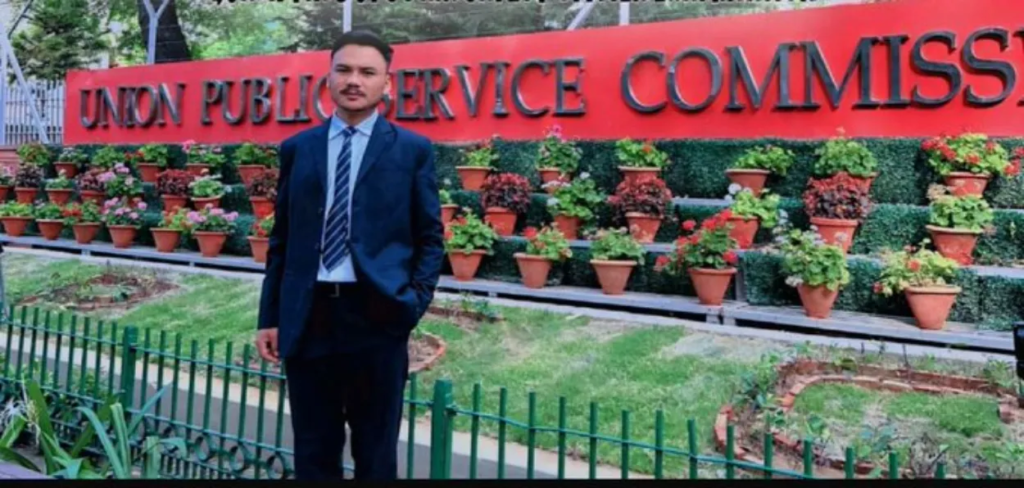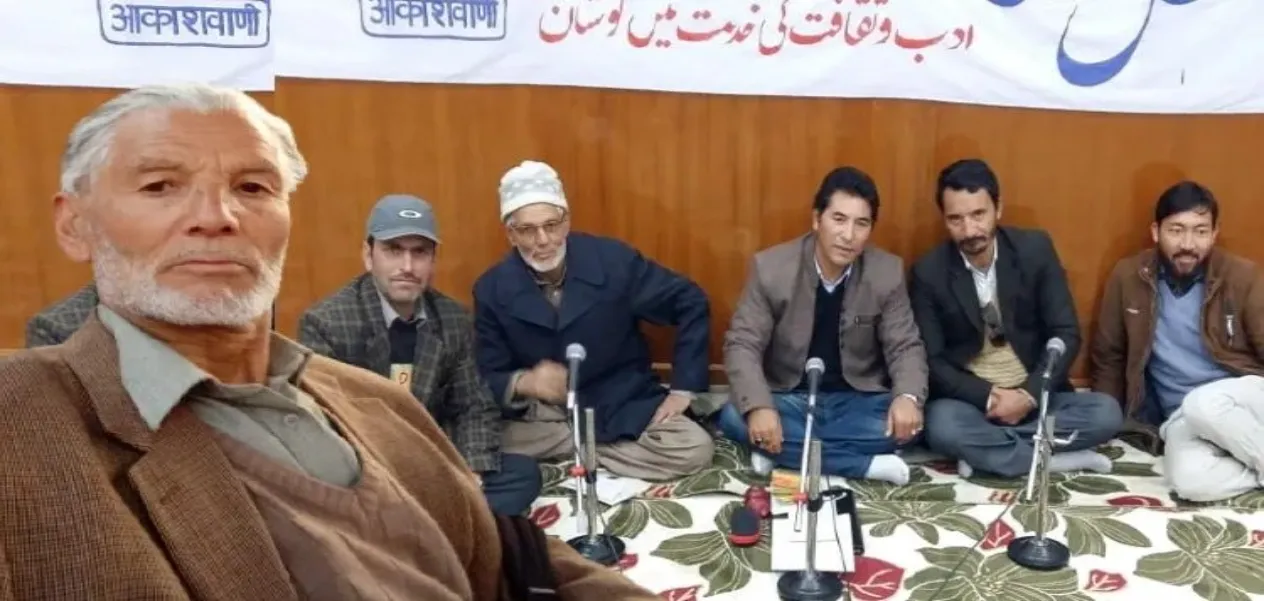Kargil, LADAKH :
An inspirational example of how tourism can be a force for good, Roots Ladakh is empowering local communities and preserving the cultural and natural heritage of Kargil.
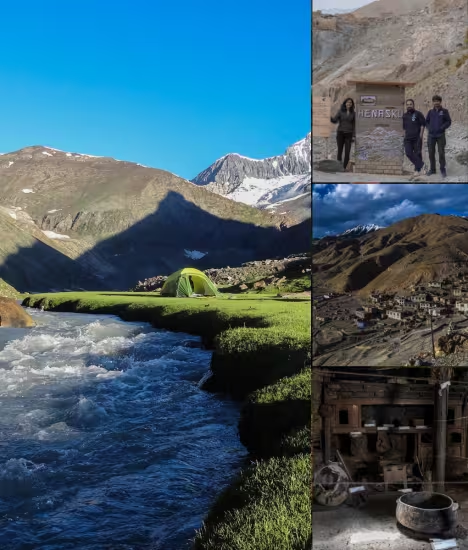
Roots Ladakh aims to change the preconceived notion of Kargil as a war zone and bring it to the world map as a responsible tourism destination
Against the rugged mountains of the north, Kargil’s troubled history shines bright even today. The town, which has much to offer to discerning travellers, is often overshadowed by the tourist hotspot of Leh and remains mired in its past. Nonetheless, shrugging off its bloody war-torn memories, Kargil is trying to reinvent itself as a tourist destination. And help has come from the people that call it home.
Laying Down Roots
It is undeniable that there is much more to Kargil than is perceived. And this is precisely what Muzammil Hussain and Tafazzul Hussain—founders of Roots Ladakh, a travel social enterprise —are trying to achieve. As youngsters, they witnessed the Indo-Pak conflict of 1999 and were sent away to complete their education. But love and belief in their beloved land brought them back home.

Tafazzul Hussain(left) and Muzammil Hussain(right) organise treks through Roots Ladakh
“At the time (of war), I was in 7th, and my brother was in 2nd Grade. We spent many years away from home, only visiting during summer breaks. During that period, I always used to get asked where I was from, and my answer would always stir awe. It would then be followed up by questions that I used to find very bothersome at that time. I used to get very bothered by the fact that people had a very narrow and skewed understanding of Kargil. Most people thought it was a garrison town in Kashmir; few even thought it was in Pakistan. For me, it became a question of identity. I always struggled to define who I am and where I am from,” expresses Muzammil. Perturbed by these miserable notions of his hometown, the brothers decided there was only one way to change the perception: to bring people to Kargil.
Roots Ladakh
Founded in 2013, Roots Ladakh had a simple vision: to change the preconceived notion of Kargil as a war zone and bring it to the world map as a responsible tourism destination.

The community-run cultural heritage museum in Henasku, Kargil
Through the enterprise, the Hussain brothers promote the lesser-known part of Ladakh, i.e. Kargil and Zanskar. Since its inception, they have taken up various initiatives to document Kargil’s natural and cultural landscape extensively.
They offer travel products such as treks and hikes, climbing, wildlife tours, travel-based design and architectural workshops, rural experiences, homestays and luxury getaways, catering to a broad segment of travellers.
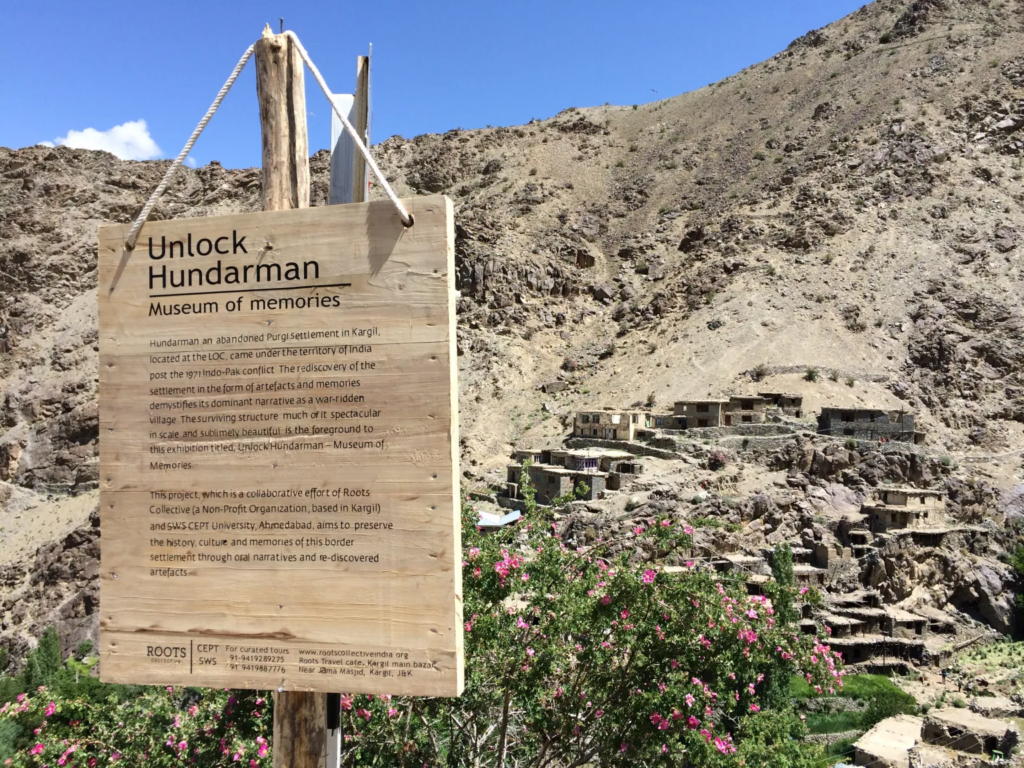
Hunderman is a small village where the Museum of Memories showcases the long forgotten stories of the region
But why focus on Ladakh? Muzammil has a simple explanation. “Ladakh is a well-known destination worldwide, and in the last decade, it has also become a very popular destination amongst domestic travellers. The tourism business is currently highly seasonal and only focuses mainly on popular destinations like Leh, Nubra and Pangong. This not only creates an inequitable income distribution from tourism but also puts a lot of strain on the ecology. Water scarcity and waste management are real threats,” he says. Hence, the bouquet of their travel offerings brings value to the communities living in Ladakh’s remote and lesser-known corners.
Experiences Galore
Perhaps, the most essential aspect of Roots Ladakh’s work is its commitment to sustainability. If you head to Ladakh with Roots, you can trust that your trip will be sustainable and immersed in natural and cultural heritage. One of their highlight projects is Unlock Hundurman – Museum of Memories, a community-run museum in a 300-year-old abandoned settlement along the Indo-Pak LoC in Kargil. These homes were opened to unfold the lives and stories of the people living here through the narratives of war, arts and crafts, lifestyle and culture.
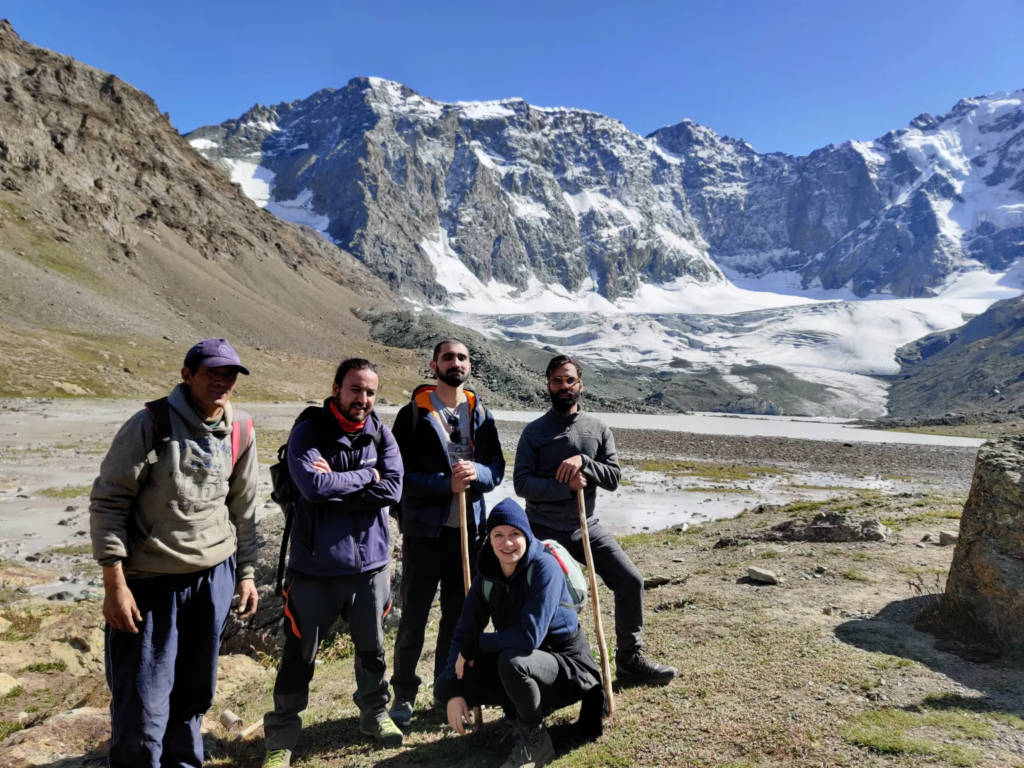
Roots Ladakh organises treks and hikes, wildlife tours, travel-based design and architectural workshops
Another initiative, Project Drenmo, focuses on wildlife conservation activities for Himalayan Brown Bear. “We wish to address the issue of the Human-Himalayan Brown Bear conflict in the region through a sustainable conflict mitigation and conservation model through community engagement. We focus on outreach, sensitisation, capacity building and wildlife tourism promotion within the community,” Muzammil shares.
One of the most popular programs Roots Ladakh offers is the homestay program, which allows visitors to stay with local families in traditional Ladakhi homes. This not only provides visitors with a unique and authentic cultural experience but also provides income to the families and helps to preserve the local way of life. An extension of that program is Black Sheep, a boutique bed and breakfast in the heart of Kargil, with a view of the beautiful Suru River as it snakes along the city. Here, you can immerse yourself in the culture and heritage of the region as you learn more about the city and its people.
Moreover, the enterprise promotes voluntarism and offers volunteer opportunities for individuals and groups in various parts of Ladakh to promote sustainability and responsible tourism. The road to success, much like the meandering roads of Ladakh, is challenging to navigate, but the brothers are committed to their cause. “Our vision is to set a road map for the coming generations to appreciate and embrace our local heritage, ethics and values. We want to inspire businesses to be conscious about creating shared value,” he says.
source: http://www.indianexpress.con / The Indian Express – Express et.al / Home> Responsible Tourism / by Mallika Bhagat / by IE Online Media Services

